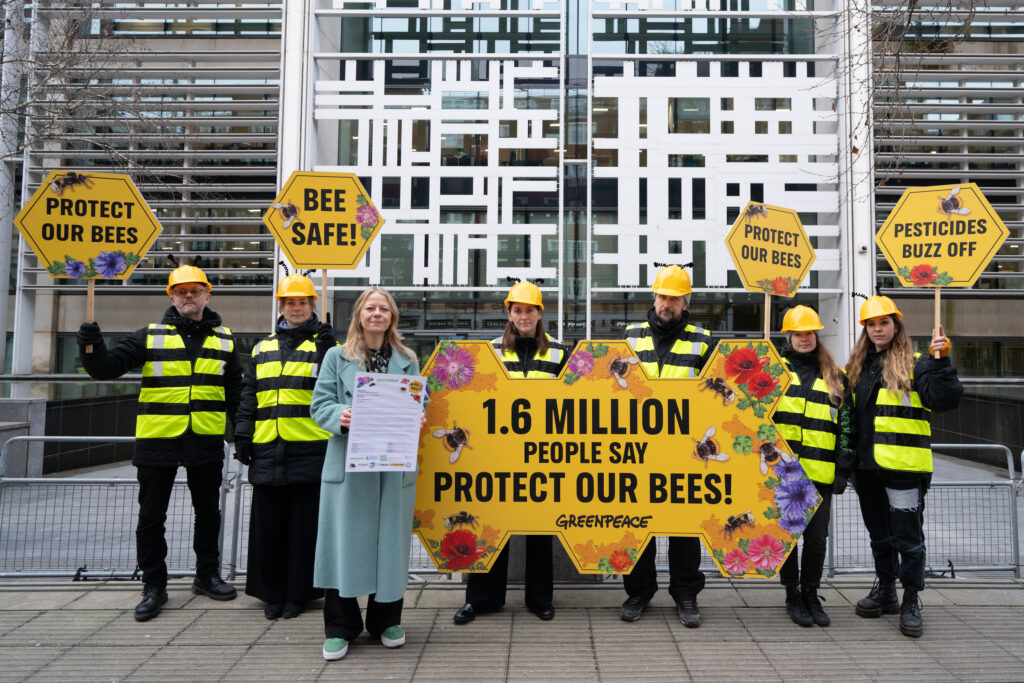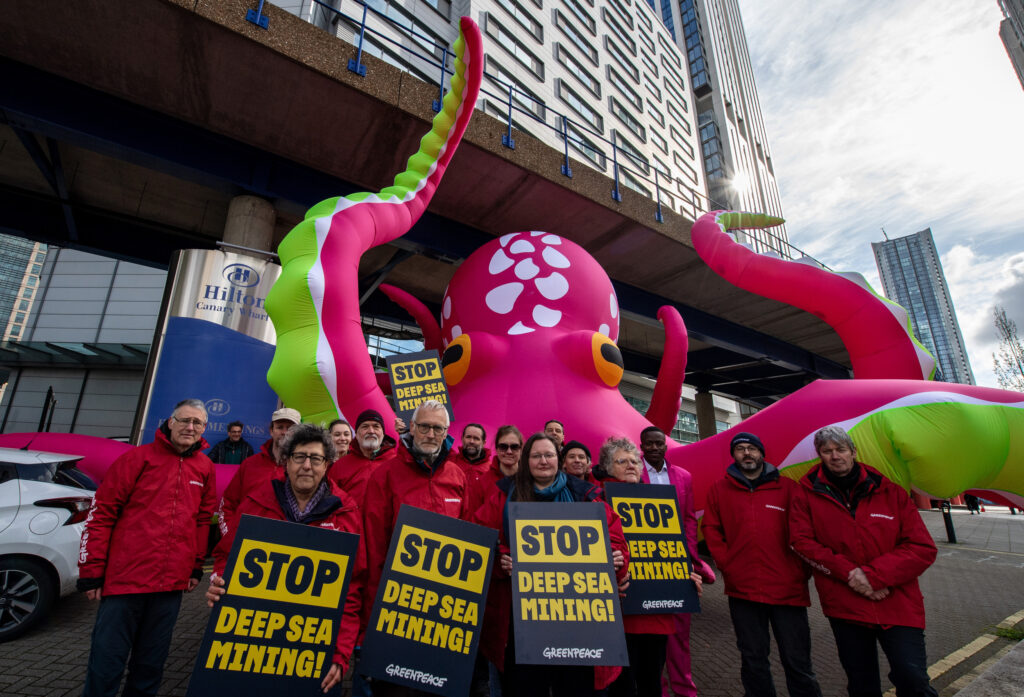
Nature is under threat – but together we’re fighting back. From saving the bees to defending the seas, here’s how Greenpeace is standing up for pollinators and the wider natural world.
Mobilising millions to save the bees

More than 1.6 million people have joined our call to ban bee-harming pesticides, and the number keeps growing. The UK government originally banned three of the most deadly pesticides back in 2017, but loopholes in the policy stopped it working well in practice.
Now, after relentless public pressure, they’re finally moving towards a proper ban – because people like you spoke up.
Exposing the deadly truth about pesticides
Greenpeace’s investigative team Unearthed have released a series of scoops exposing how pesticide giants and governments put profit before people and pollinators. This vital work has spread around the world, sparking debate and changing minds in the halls of power.
- ‘Ultimate hypocrisy’: UK exported 8,500 tonnes of banned pesticides last year
- Weaken post-Brexit rules on pesticides in drinking water, farming lobby told minister
- EU still sending banned bee-killing pesticides to poorer countries
- Loophole keeps bee-killing pesticides in widespread use, two years after EU ban
🐝 Be a pollinator protector
Keen to discover more? Join thousands of others who’ve signed up for our pollinators email course. It’s free, easy to follow, and packed with practical tips and surprising facts. Sign up here and be part of the buzz.
Nature needs protectors. Be one of them.
See how you can get involved in Greenpeace’s world-changing campaigns.

A historic treaty to protect our oceans – and the quest to make it count

After years of campaigning by Greenpeace and many others, governments finally agreed to a Global Ocean Treaty. The treaty paves the way for new ocean sanctuaries where sea life can recover and thrive – but only if politicians follow through. We’re pushing them to honour their promises and protect at least 30% of our seas by 2030.
Tiny fish, big impact: sand eel fishing ban helps puffins thrive
Puffins are eating better thanks to a Greenpeace-backed ban on fishing for sand eels.Sand eels aren’t the most cute and cuddly sea critters, but they’re a vital source of food for the UK’s most iconic seabirds, including puffins and kittiwakes. Ending industrial sand eel fishing is a powerful move to protect these beautiful creatures.
Putting the brakes on deep sea mining

From tiny inflatable boats to giant inflatable octopuses, Greenpeace campaigning helped persuade the UK government to call for a global ban on deep-sea mining. That’s a big boost for the ongoing campaign to protect fragile seabed habitats from this reckless industry.
